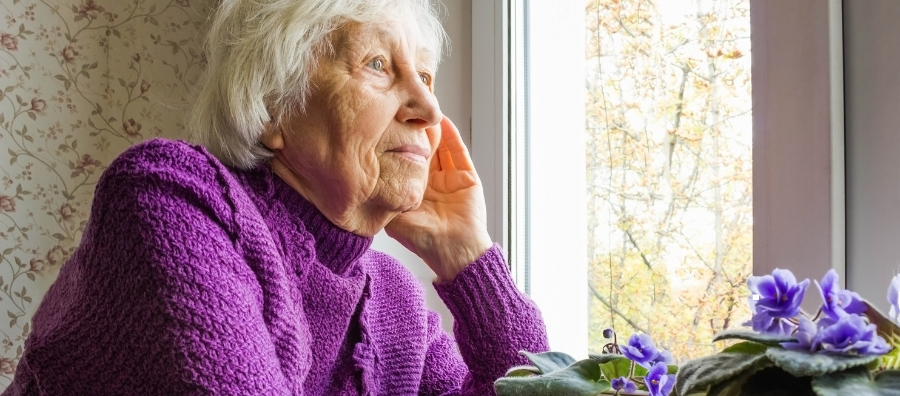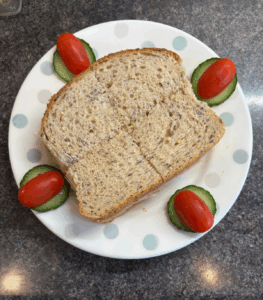As the evenings grow darker and the weather colder, many of us experience a subtle shift in mood, energy, and motivation. At Braeburn Care, we recognise that boosting mood and wellbeing as the days get shorter is a shared challenge that affects both our customers and our care professionals. Whether you’re providing support or receiving it, these seasonal changes are very real – but with the right awareness and support, they’re manageable.
In this blog, we explore what Seasonal Affective Disorder (SAD) is, how it impacts daily life, and the small, mindful ways we can all help improve emotional wellbeing through the winter months.
What Is Seasonal Affective Disorder (SAD)?
SAD is a type of depression that typically occurs during autumn and winter, linked to the reduced exposure to daylight. The lack of natural sunlight can disrupt the body’s internal clock (circadian rhythm), lower serotonin levels (which influence mood), and disturb melatonin production (affecting sleep).
Symptoms may include:
- Low or persistently irritable mood
- Lack of motivation
- Increased tiredness or excessive sleeping
- Difficulty concentrating
- Changes in appetite or weight
- Withdrawal from social contact
While not everyone who feels a little low in winter has SAD, even mild symptoms can impact quality of life – particularly for those with existing health conditions, reduced mobility, or those living alone.
Boosting Mood and Wellbeing as the Days Get Shorter
Supporting emotional resilience through darker months isn’t about quick fixes, but rather small, consistent habits that lift spirits and protect mental health.
1. Maximise Natural Light
Try to spend time outdoors daily, especially in the morning when natural light is strongest. Encourage opening curtains fully, sitting near windows, and heading out for a walk, even just for 10 minutes. For individuals receiving home care, carers can support by helping them outside or arranging activities near bright areas.
2. Consider Light Therapy
Light therapy lamps (SAD lamps) simulate natural sunlight and can help reset the body’s internal clock. They’re particularly useful when used regularly in the early hours of the day. Always follow product or GP guidance before use.
3. Stay Socially Connected
Isolation can worsen low mood. For those living alone, daily care visits provide not just practical help but vital social interaction. A friendly conversation, shared lunch, or an activity like puzzles or crafts can do wonders. For care professionals, making time for social connection with colleagues, friends, or family can equally lift spirits.
4. Move More, Sit Less
Physical activity – even gentle movement – boosts endorphins and energy levels. Encourage stretching, chair-based exercises, or a stroll around the garden. For care teams, regular movement breaks and fresh air help reduce fatigue.
5. Prioritise Nutrition and Hydration
Comfort food may be tempting during colder months, but a diet rich in whole grains, fruits, vegetables, lean proteins, and healthy fats supports stable energy and mood. Hydration matters too – a warm herbal tea or hydrating soup counts!
6. Talk It Through
Whether you’re a care recipient, a family member, or a care professional – don’t hesitate to talk about how you’re feeling. Mental health matters at every level, and seeking help early can prevent deeper distress. GPs, counselling services, and local wellbeing groups are great places to start.
Braeburn Care: Caring for the Whole Person
At Braeburn Care, we believe that care goes far beyond routines and practical support. Our mission is to look after every aspect of wellbeing – emotional, physical, and social.
Our Care Professionals are not only trained to assist with daily needs but also to provide genuine companionship, encouragement, and empathy. Whether it’s helping a customer step outside into the sunshine, cooking a favourite nourishing meal, or simply being a friendly face during a difficult day – we understand the importance of showing up with warmth, while boosting mood and wellbeing.
And to our care team: you can’t pour from an empty cup. Please take the time to care for yourselves this season. Whether it’s getting outside, sharing laughs with colleagues, or simply taking time to rest, your wellbeing matters deeply.
The Impact of Seasonal Changes on Care
Winter can feel isolating for older adults, especially those experiencing cognitive decline or physical limitations. As a provider of person-led, private home care, we see first-hand how proactive emotional support can improve health outcomes and prevent further decline.
We work closely with families to ensure seasonal challenges like loneliness, reduced appetite, or low motivation are gently addressed through tailored support. Boosting mood and wellbeing as the days get shorter isn’t a bonus service – it’s part of our everyday commitment to excellence in care.
Frequently Asked Questions (FAQs)
- What is Seasonal Affective Disorder (SAD)?
SAD is a type of seasonal depression triggered by reduced daylight in autumn and winter. It often affects older adults, people with mobility challenges, and those living alone. - How does Braeburn Care support mental wellbeing during the winter months?
Braeburn Care provides personalised home care across Kent and East Sussex, including emotional wellbeing support. Our Care Professionals help customers stay socially connected, maintain healthy routines, and engage in uplifting daily activities that can reduce the impact of SAD. - Is light therapy safe, and do you support customers who use SAD lamps?
Light therapy is a popular and evidence-based tool for managing low mood in winter. While we don’t prescribe medical equipment, Braeburn Care can support customers who use light therapy lamps as part of their wellness routine, always under GP guidance. - Can Braeburn Care offer companionship visits in Tunbridge Wells and nearby areas?
Yes. Our companionship care services are available across Tunbridge Wells, Tonbridge, Sevenoaks, Crowborough and surrounding areas. These visits are ideal for older adults who may feel lonely or need extra encouragement during the darker months. - How can I tell if my loved one needs extra support this winter?
Watch for signs like increased tiredness, appetite changes, or social withdrawal. If you’re unsure, contact Braeburn Care for a no-obligation wellbeing assessment to explore what level of support could benefit your loved one. - Do you offer short-term winter care packages in West Kent or East Sussex?
Absolutely. We understand that needs change seasonally, so we offer flexible, short-term care solutions – from once-a-day wellbeing checks to multiple visits throughout the week.













